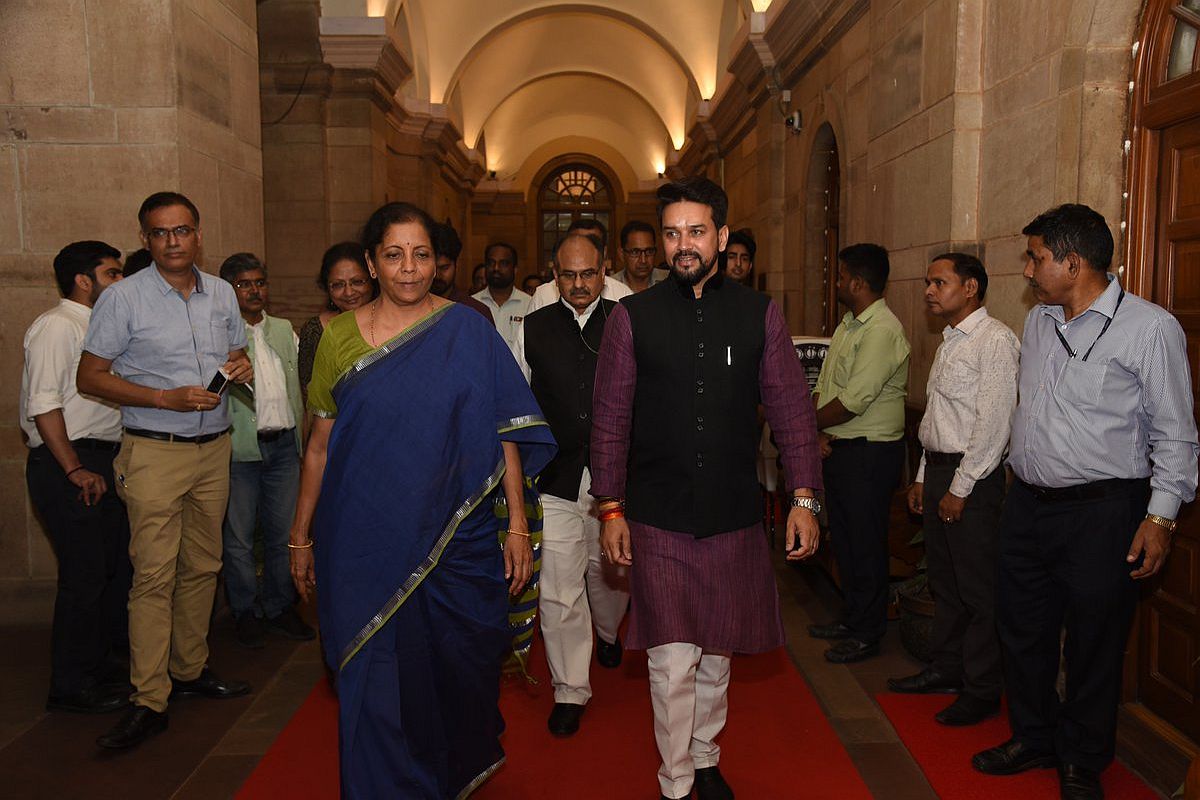FM Sitharaman holds talks with top Swiss official to boost economic ties
“Finance Minister Nirmala Sitharaman had a productive discussion with Ms. Helene Budliger Artieda, Swiss State Secretary for Economic Affairs in New Delhi
The Kasturirangan Committee has recommended the teaching of Hindi, English and one regional language in the non-Hindi states.

(Photo: Twitter | @nsitharaman)
Amid uproar over the draft National Education Policy that recommends making teaching Hindi compulsory up to class 8, the Centre impressed upon implementing the draft policy only after hearing public opinion.
The draft national education policy report of the K Kasturirangan Committee has invoked apprehensions from various segments of the society including politicians.
Advertisement
The Kasturirangan Committee has recommended the teaching of Hindi, English and one regional language in the non-Hindi states; and Hindi, English and one modern Indian language from other parts of the country in Hindi-speaking states.
Advertisement
Not ruling out the implementation of the controversial policy, Finance Minister Nirmala Sitharaman tweeted, “Only after hearing public opinion the draft policy will be implemented. Only to nurture all Indian languages PM launched EkBharatSreshthaBharat. The Centre would support to honour and develop the ancient Tamil language”.
External Affairs Minister S Jaishankar too voiced a similar view in a tweet saying that the National Education Policy as submitted to the Minister HRD is “only a draft report”. He further said feedback will be obtained from the general public. “State Governments will be consulted. Only after this, the draft report will be finalised. GoI respects all languages. No language will be imposed,” he said.
The National Education Policy as submitted to the Minister HRD is only a draft report. Feedback shall be obtained from general public. State Governments will be consulted. Only after this the draft report will be finalised. GoI respects all languages. No language will be imposed
— Dr. S. Jaishankar (@DrSJaishankar) June 2, 2019
The minister’s remark comes in the wake of apprehensions expressed by political parties and academicians in Tamil Nadu, Telangana, Andhra Pradesh and West Bengal over the draft education policy. They have cautioned the Centre against imposing any language against the wishes of states.
Earlier on Sunday, Karnataka Chief Minister HD Kumaraswamy and Congress lawmaker from Kerala Shashi Tharoor issuing warnings against the forced imposition of the Hindi language on South Indian states.
“Most of us in the South learn Hindi as a second language but nobody in the North is learning Malayalam or Tamil,” Tharoor was quoted as saying by news agency ANI.
Vice President M Venkaiah Naidu has also urged all stakeholders to go through the entire report, instead of reacting hastily.
“I urge everybody… don’t be hasty before coming to conclusions. Go through the entire report, study, discuss and analysis and react so that government can act after the discussions,” he said while addressing the “Industry Academy Interaction for Improvement of Quality of Academics” organised by the Indian Institute of Petroleum and Energy (IIPE) in Visakhapatnam.
However, earlier the central government said it had not taken a decision on the draft education policy and had no intentions to impose any language.
Union Information and Broadcasting Minister Javadekar had clarified in New Delhi on Saturday that the draft report was a recommendation and not a policy, and that “all Indian languages will be promoted”.
Opposition parties in Tamil Nadu have opposed the three-language formula for schools in the state.
DMK Lok Sabha member Kanimozhi said her party would oppose any such move.
Reacting to the formula, actor-turned-politician Kamal Haasan said, “No language should be imposed and those who are interested can learn any language of their choice”.
Academicians and writers in West Bengal too have protested against the draft policy.
(With agency inputs)
Advertisement